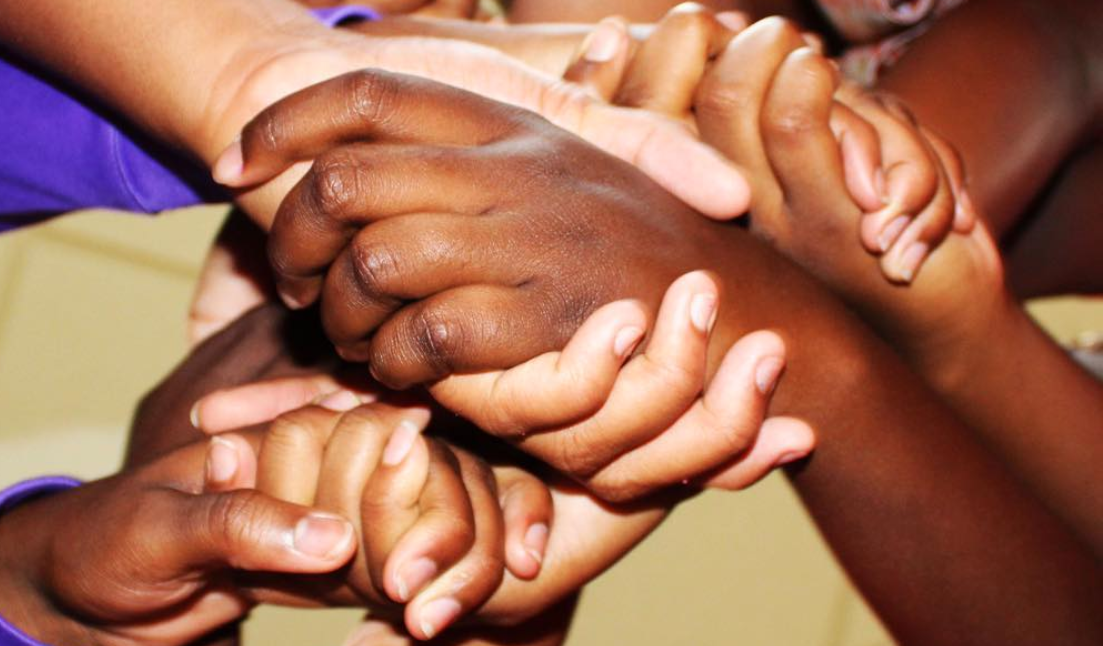Pedagogical Love and Empowerment: Girls of Color in Urban Classrooms
Girls of color in urban schools face emotional and physical pain, apathy, criminalization, and a lack of role models especially in the field of STEM. In order to counter this problem so that girls of color can thrive academically, the articles discussed below encourage teachers to value girls’ cultures, experiences, and voices as an effort to help them empower themselves.
First, these articles focus on the lack of empowerment of girls of color in STEM. A scholarly article titled “Girls Explore Math Careers by Making 3D-Constructions of Diverse Women Mathematicians’ Lives” by Audrey Rule, Dana B Blaine, Clayton Edwards, and Mindy Gordon emphasizes that even with similar numbers and achievement for boys and girls in Kindergarten through twelfth grade, girls pursue STEM at one fourth the frequency as males (Rule et al., 2019, p. 542). The researchers asked twenty-four racially diverse fifth grade girls to creatively research a set of racially diverse women mathematicians with whom the students could identify. The students gained “knowledge, encouragement, and satisfaction… from hearing the stories of these women mathematicians and the challenges they faced and overcame” (Rule et al., 2019, p. 568). According to this study, effective solutions include providing girls with career role models, a culturally relevant and reflective education, and growth mindsets. In the practitioner article “Reshma Saujani on Getting Girls Into Computer Science,” Saujani (the founder of Girls Who Code) recommends safe, “gender-specific spaces” so girls can “learn to love computer science—and then change the world,” echoing the importance of girls’ empowerment in STEM ("Reshma Saujani," 2019, para. 4).
More broadly, girls of color lack empowerment in the classroom. In “Schoolin’ Black Girls: Politicized Caring and Healing as Pedagogical Love,” scholars Sherell McArthur and Monique Lane state that black girls experience “emotional, physical, and intellectual violence” as a result of “criminalization,” “apathetic educators, deficit teacher ideologies, and culturally irrelevant pedagogies” (McArthur & Lane, 2018, pp. 66, 69). Based on two studies, the authors recommend “pedagogical love,” or “teaching and learning in the name of love,” as well as a “Black feminist pedagogy” that is both “anti-deficit and anti-pathological” (McArthur & Lane, 2018, pp. 66). The authors declare that “pedagogical love liberates and transforms young learners, and lies within them as they are emboldened to transform the world (McArthur & Lane, 2018, pp. 67, 78). Curriculum changes focusing on “critical consciousness” and “critical media literacy” also help black girls understand the systematic oppression that they face and decode messages about black girlhood. Together, these strategies lead to “collective empowerment among Black girl learners” (McArthur & Lane, 2018, pp. 68, 73, 70). In Larry Ferlazzo’s practitioner article “Response: ‘There is Still a Lot of Work’ Schools Need to Do in Supporting Black Girls,” Gholdy Muhammad, Shannon Waite, Marquitta Speller, and Valerie Kinloch add examples of “a pedagogy of love” (Ferlazzo, 2019, para. 17). After repeating similar pedagogical ideologies, such as “centering” and “empowering black and Latinx girls to understand that they do, in fact, matter, have agency, and have a voice,” as well as helping girls develop a critical mindset by studying systematic oppression, the authors provide practical solutions for schools. These include promoting “culturally relevant professional development,” “hiring and supporting black women teachers and leaders,” and fighting “against the criminalization of black girls” (Ferlazzo, 2019, para. 20).
These articles advocate for a more empathetic learning environment so that teachers and girls of color can reach mutual respect, understanding, and love. Pairing this loving learning environment with empowering and culturally conscious curricula will help girls of color empower themselves academically—both specifically in STEM and more generally in their academic and future professional careers.
References
Ferlazzo, L. (2019, February 25). Response: ‘there is still a lot of work’ schools need to do in supporting black girls. Education Week Teacher. Retrieved from https://blogs.edweek.org/teachers/classroom_qa_with_larry_ferlazzo/2019/02/response_there_is_still_a_lot_of_work_schools_need_to_do_in_supporting_black_girls.html
McArthur, S., Lane, M. (2018, October 31). Schoolin’ black girls: politicized caring and healing as pedagogical love. The Urban Review, 51(1), 65-80. doi:10.1007/s11256-018-0487-4
Reshma Saujani on getting girls into computer science. (2019, February). Educational Leadership, 76(5), 10-11. Retrieved from http://web.a.ebscohost.com.ezproxy.bowdoin.edu/ehost/pdfviewer/pdfviewer?vid=8&sid=c4e9b2f0-d05a-4e70-b328-5c8024af6d8a%40sdc-v-sessmgr02
Rule, A., Blaine, D., Edwards, C., Gordon, M. (2019). Girls explore math careers by making 3D-constructions of diverse women mathematicians’ lives. The Mathematics Enthusiast, 16(1,2,3), 541-578. Retrieved from https://search-proquest-com.ezproxy.bowdoin.edu/education/docview/2172581279/fulltextPDF/E699898A253B42ACPQ/11?accountid=9681
